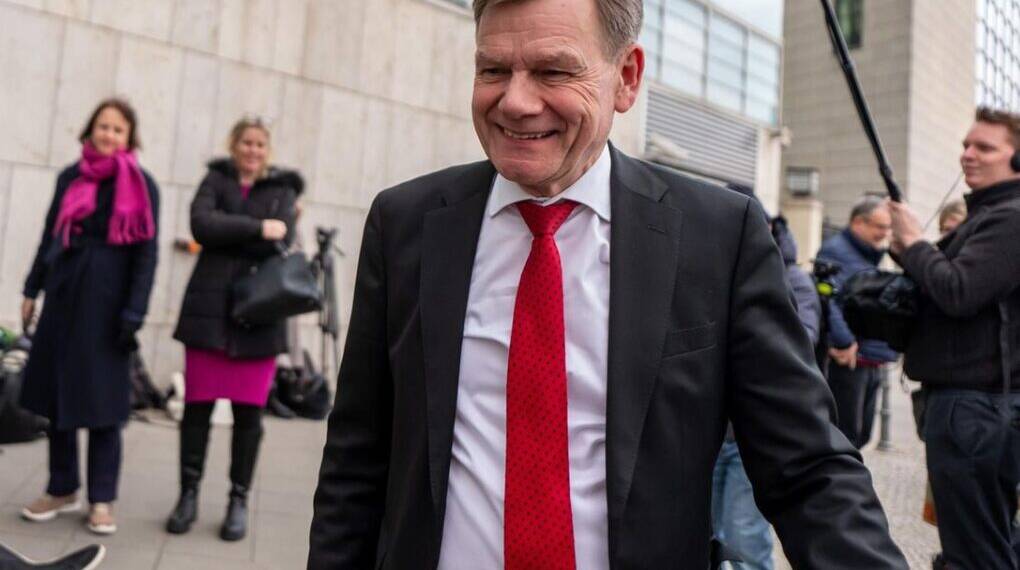Germany’s Foreign Minister Johann Wadephul (CDU) has abruptly cancelled his planned official visit to China after it emerged that no high-ranking Chinese officials were willing to meet him. The cancellation, described by the Foreign Office in Berlin as a “spontaneous decision,” highlights the growing diplomatic chill between Europe’s largest economy and Beijing at a time of increasing global tension over trade, technology, and security.
Diplomatic Snub in Beijing
The visit, scheduled for the final week of October, was intended to reaffirm Germany’s commitment to maintaining dialogue with China amid deteriorating ties between Beijing and Western capitals. However, according to German diplomatic sources cited in Berlin-based outlets, Chinese authorities reportedly showed “minimal interest” in arranging high-level meetings for the visiting minister. This prompted Wadephul to cancel his trip at the last minute, a move that has since become a symbol of Germany’s diminished diplomatic influence in Beijing.
The German Foreign Office released a brief statement attributing the cancellation to “scheduling constraints,” but insiders admit that the decision was largely driven by the lack of reciprocal engagement from Chinese officials. No meeting with Foreign Minister Wang Yi or any senior government representative was confirmed, effectively rendering the visit diplomatically meaningless.
Backdrop of Rising Tensions
Wadephul’s cancelled visit comes against the backdrop of a significant recalibration in Germany’s foreign policy toward China. The government in Berlin, under growing pressure from the European Union and the United States, has taken a more assertive stance on Beijing’s human rights record, its growing assertiveness in the Indo-Pacific, and concerns over economic dependencies.
Earlier this year, Germany unveiled its first-ever China Strategy, which called for “de-risking” economic relations with Beijing. The document emphasized reducing dependency on Chinese supply chains and increasing scrutiny over technology exports, particularly in sectors linked to semiconductors, artificial intelligence, and telecommunications. While Berlin insisted the strategy was not intended as a “decoupling,” Beijing viewed it as an unfriendly gesture.
In response, Chinese state media accused Germany of aligning too closely with Washington’s containment agenda, arguing that Berlin’s new foreign policy undermines the “mutual respect and win-win cooperation” that once defined Sino-German relations. The latest diplomatic snub appears to be a manifestation of this growing friction.
Wadephul’s Emerging Foreign Policy Profile
Johann Wadephul, who succeeded Annalena Baerbock as Foreign Minister earlier this year, has sought to redefine Germany’s global posture with a stronger emphasis on transatlantic unity and a values-based approach to diplomacy. A member of the Christian Democratic Union (CDU), Wadephul has been a long-time advocate for strengthening ties with NATO and adopting a firmer stance against authoritarian regimes.
In several recent speeches, he called for “strategic clarity” in dealing with China, urging European partners to speak “with one voice” in confronting Beijing on human rights abuses in Xinjiang and its military pressure on Taiwan. These comments reportedly irked Chinese diplomats, who warned that such rhetoric would “damage trust” between the two nations.
The cancellation of Wadephul’s visit now raises questions about the future of his foreign policy approach. Analysts note that while his tougher stance aligns with Washington and Brussels, it risks further alienating China, Germany’s largest trading partner.
Economic Stakes and Political Fallout
The diplomatic fallout carries significant economic implications. China remains a critical export market for German industries, particularly automobiles, machinery, and chemicals. Major corporations such as Volkswagen, BASF, and Siemens have deep investments in China, making any deterioration in political ties potentially costly.
Business leaders in Germany have already expressed concern that the growing politicization of bilateral relations could endanger commercial interests. The Federation of German Industries (BDI) has urged the government to pursue a “balanced and pragmatic” approach that safeguards both economic security and value-based diplomacy.
Politically, the episode exposes the challenges facing the CDU-led foreign ministry as it attempts to assert Germany’s autonomy within an increasingly polarized global environment. The optics of a cancelled visit due to lack of Chinese engagement are widely seen as a diplomatic embarrassment for Berlin, undermining its efforts to project leadership within Europe.
Broader Geopolitical Context
The incident also reflects a wider realignment of global power dynamics. Relations between China and the European Union have deteriorated sharply in recent years over issues such as sanctions, technology restrictions, and Beijing’s refusal to condemn Russia’s invasion of Ukraine.
Within this context, Wadephul’s cancellation is more than a personal setback; it signals a deeper strategic impasse between Europe and China. As Beijing grows increasingly selective in its diplomatic engagements, European states face the challenge of balancing moral principles with geopolitical realities.
The abrupt cancellation of Foreign Minister Wadephul’s visit to China serves as a telling indicator of the current state of Sino-German relations. What was once a pragmatic partnership anchored in trade and industrial cooperation has evolved into a complex and often contentious relationship marked by mutual suspicion and strategic divergence.
Whether Berlin chooses to recalibrate its approach or continue on a confrontational path will shape not only Germany’s standing in Beijing but also the broader European position in the emerging global order.








